How Odoo Dashboards Drive Data-Backed Decisions
Odoo
5 MIN READ
April 3, 2025
![]()
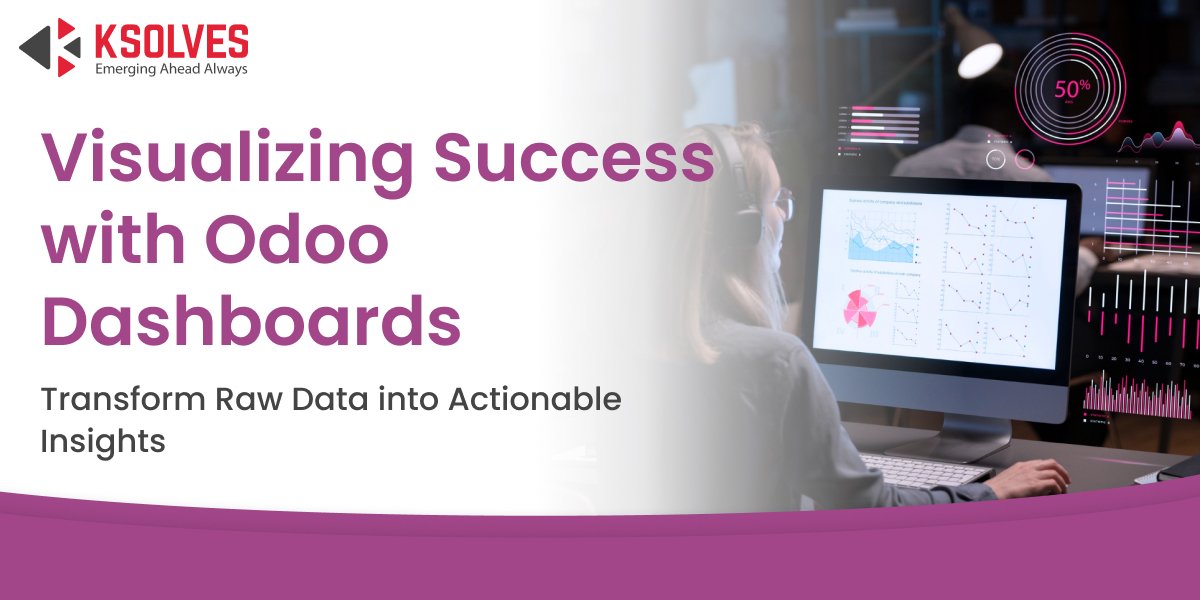
In today’s hyper-competitive market environment, data has become the backbone of smart decision-making. Companies that harness data effectively can outpace competitors, adapt to market shifts, and uncover hidden opportunities. However, with information scattered across spreadsheets, apps, and departments, turning raw numbers into actionable strategies can feel like solving a complex puzzle.
Odoo, a popular all-in-one business management software, addresses this challenge by integrating critical functions—from sales and inventory to HR and accounting—into a single platform, providing a unified view of operations. At the heart of Odoo lies its Dashboards, a game-changing tool designed to simplify complexity. These dashboards transform chaotic data streams into clear, visual insights, empowering teams to make faster, smarter decisions.
In this blog, we’ll explore how Odoo Dashboards turn overwhelming data into a strategic advantage and help businesses make data-backed decisions.
What are Odoo Dashboards?
Odoo dashboards are centralized platforms within the Odoo ERP system that provide a visual representation of key business metrics and data. They pull real-time information from various departments, such as sales, finance, inventory, and HR, and present it through intuitive charts, graphs, and summaries.
Their primary purpose is to democratize data access and simplify decision-making. Instead of sifting through fragmented spreadsheets or isolated systems, teams can view key performance indicators (KPIs) at a glance. By translating raw data into visual formats, Odoo Dashboards eliminate confusion, reduce manual effort, and ensure key stakeholders can quickly interpret trends, spot issues, and act with confidence.
For instance:
- Sales teams can track real-time revenue, pipeline progress, and customer conversion rates.
- Inventory managers gain visibility into stock levels, supplier lead times, and demand forecasts.
- HR leaders monitor employee productivity, attendance trends, and recruitment efficiency.
So, in a world where data overload has become common, Odoo Dashboards help turn complexity into clarity and empower businesses to focus on growth.
Key Features of Odoo Dashboards That Facilitate Data-Driven Decision-Making
Odoo dashboards are packed with various features that make data analysis and decision-making simpler. Here are some of the key features that business owners should know about:
- Real-Time Data Tracking
Odoo dashboards update with live, real-time data from your operations. The moment a sale is recorded, an expense is logged, or new inventory arrives, those figures can reflect on your dashboard. You don’t have to run a report or refresh manually. This instant visibility of key performance indicators (KPIs) enables you to make decisions on time.
For instance, if sales are spiking today, you’ll see the revenue KPI climbing and can allocate more stock or staff as needed. Conversely, if a metric like website traffic or production output dips, you catch it immediately. - Customizable Widgets
Every business is different, and Odoo customization company recognizes that. Odoo dashboards are highly customizable, which means you can choose which metrics to display, how they’re visualized, and even create brand-new dashboard elements. This flexibility helps you customize the dashboard to fit your specific needs.
For example, you might configure a dashboard for a sales manager to show lead conversions and sales funnels, while a warehouse manager’s dashboard highlights stock levels and delivery status. This level of personalization lets each user see the most relevant information based on their role, boosting their efficiency. - Automated Reports & Analytics
Generating reports by hand can be a time-consuming task. Odoo dashboards help eliminate that burden through automation. You can set up dashboards to automatically pull in data and present it in predefined charts or tables. Many Odoo dashboards also allow scheduling of reports or use historical data for analysis and forecasting.
In other words, Odoo can not only show you what’s happening now but also help predict what might happen next. For example, Odoo’s built-in forecasting tools use historical data to predict future trends (such as upcoming sales figures or inventory needs), giving businesses insights to plan ahead These analytics features turn raw data into actionable intelligence automatically, so you spend less time preparing reports and more time acting on them. - Multi-Module Integration
Traditional business systems keep important data confined to separate departments which results in departments using separate apps while obtaining insufficient insights. Odoo Dashboards resolve data fragmentation by combining information from CRM, Accounting, Inventory and HR business functions within a single interface. The automated integration system links appropriate metrics which prevents stock-related problems like shortages or surplus.
For example, a surge in online orders automatically alerts both Sales and Procurement teams, allowing them to quickly adjust plans to avoid delays. By removing the need for manual data consolidation, Odoo creates a clear, complete view of operations. This allows teams to make informed decisions based on comprehensive data, not assumptions. - Interactive Visualizations
Static charts or spreadsheets can make data feel rigid and hard to explore. Odoo Dashboards fix this by turning numbers into interactive charts, graphs, boards, and tables that users can click, filter, or rearrange on the fly. For example, a project manager might use a Kanban board to drag and drop tasks between “In Progress” and “Completed” columns, while a sales team could toggle a bar chart into a line graph to compare monthly revenue trends.
Clicking on a specific product line in the chart might reveal detailed sales figures per region or customer group. Regardless of technical skill, these visuals let anyone dig deeper, ask “what if?” questions, and spot opportunities hidden in plain sight.
Benefits of Odoo Dashboards for Businesses
Odoo dashboards offer significant benefits for business owners aiming to make smarter, faster decisions. A specialized Odoo customization company can tailor these dashboards to better meet specific business needs, enhancing their effectiveness. Here are some key advantages:
1. Improved Efficiency
Odoo Dashboards streamline workflows by automating data aggregation and eliminating redundant manual processes. Teams spend less time compiling reports and more time analyzing insights. This makes sure decisions are driven by accurate, up-to-date information rather than delayed or fragmented inputs.
2. Enhanced Transparency
With all key metrics unified in one place, departments gain a shared understanding of performance. This transparency builds trust in the data, ensuring decisions are rooted in a single source of truth rather than conflicting reports.
3. Faster Decision-Making
Odoo Dashboards give teams instant access to data through easy-to-read charts, helping them spot trends, risks, and opportunities quickly. Instead of reacting to problems after they occur, businesses can use this real-time information to plan ahead and make faster, smarter decisions, even when conditions change rapidly.
4. Scalability
As businesses grow, so do their data needs. Odoo Dashboards adapt effortlessly, whether adding new metrics, integrating additional modules, or customizing views for expanding teams. This scalability ensures that data-backed decisions remain agile as business complexity increases.
How Odoo Dashboards Enable Data-Backed Decisions in Every Department
To understand the impact of Odoo dashboards, let’s look at a few real-world scenarios where business owners leverage these dashboards for enhanced decision-making across different teams:
Sales Team
Odoo Dashboards empower sales teams to track their pipeline, monitor conversion rates, and analyze revenue trends in real-time. By visualizing which leads are progressing, which deals are stalling, and how revenue stacks up against targets, teams can prioritize high-value opportunities, adjust strategies, and forecast future performance with confidence.
Inventory Management
Inventory managers use Odoo Dashboards to monitor stock levels, track supplier performance, and predict demand. Real-time visibility into stock turnover rates and supplier delays helps businesses avoid stockouts, reduce excess inventory costs, and align procurement with sales trends. This ensures shelves stay stocked and customers remain satisfied.
HR Department
HR teams leverage dashboards to analyze employee productivity, track attendance patterns, and optimize recruitment efforts. By spotting trends like frequent absenteeism or bottlenecks in hiring, HR can address issues proactively, allocate resources effectively, and improve workforce planning to support growth.
Finance Team
Finance departments rely on Odoo Dashboards to visualize cash flow, track expenses, and assess profitability. Instant access to financial health metrics, like current debt levels or cost-to-revenue ratios, enables teams to flag risks early, optimize budgets, and make strategic investments backed by real-time data.
Summing Up!
Businesses that want to use data for making strategic decisions must implement Odoo Dashboards as their core component. These dashboards combine data from different departments through visual interfaces that generate rapid market and internal change responses. Through dashboard implementation, companies achieve greater efficiency while obtaining better transparency, faster decision-making capabilities, and flexible solutions that grow with their business needs.
With over 12 years of experience, Ksolves stands as an Odoo development service leader that prepares to assist your business with complete Odoo Dashboard utilization. As an Odoo Partner (Gold), our team creates optimized Odoo solutions that lead to dashboards that deliver both efficiency and clarity. Ksolves stands as your implementation partner to simplify Odoo setup as well as customization and support functions and scaling needs. Our expertise will turn your data into an innovative tool for business expansion while helping your organization achieve superior market performance. Contact us today!
![]()
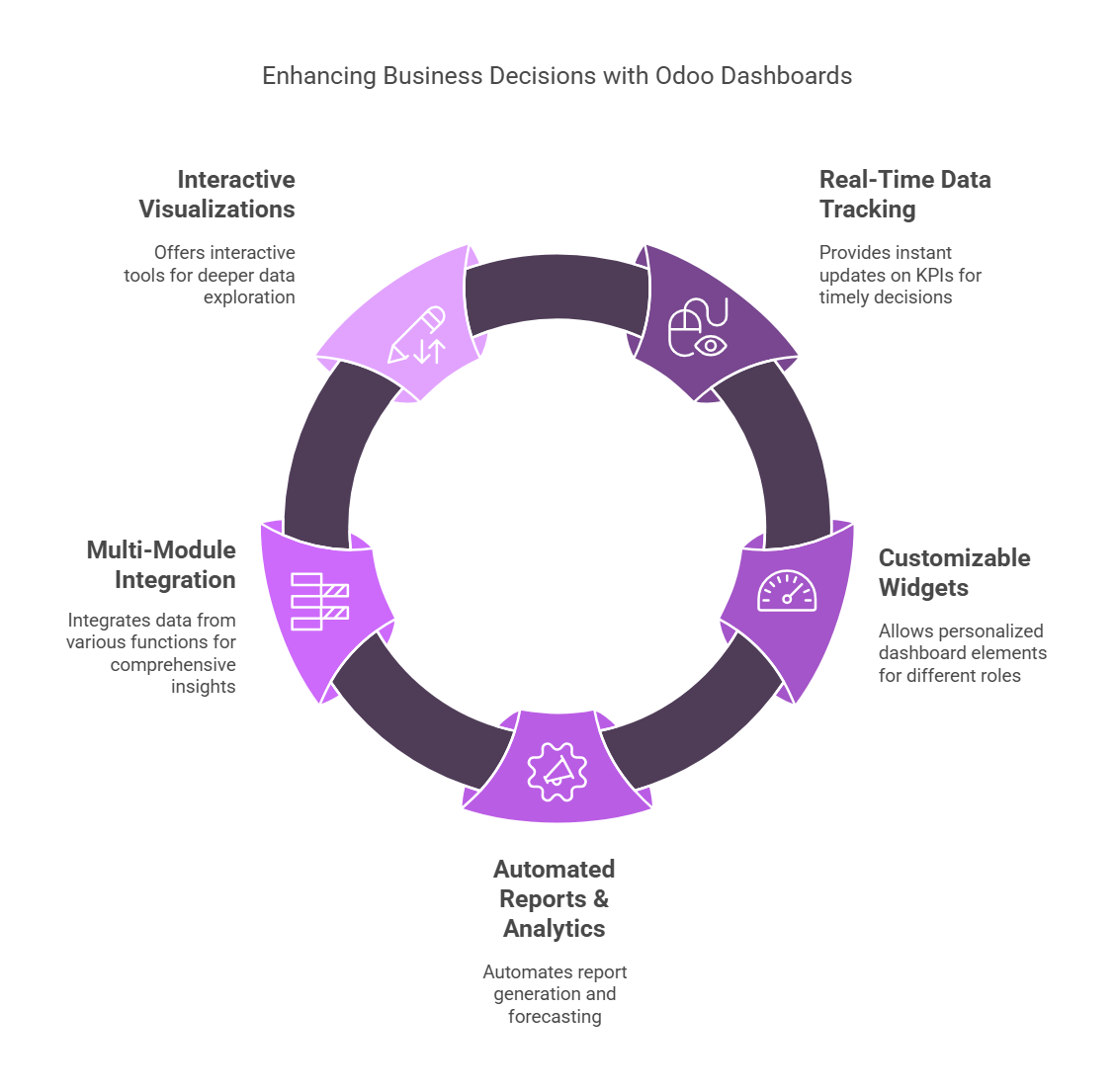
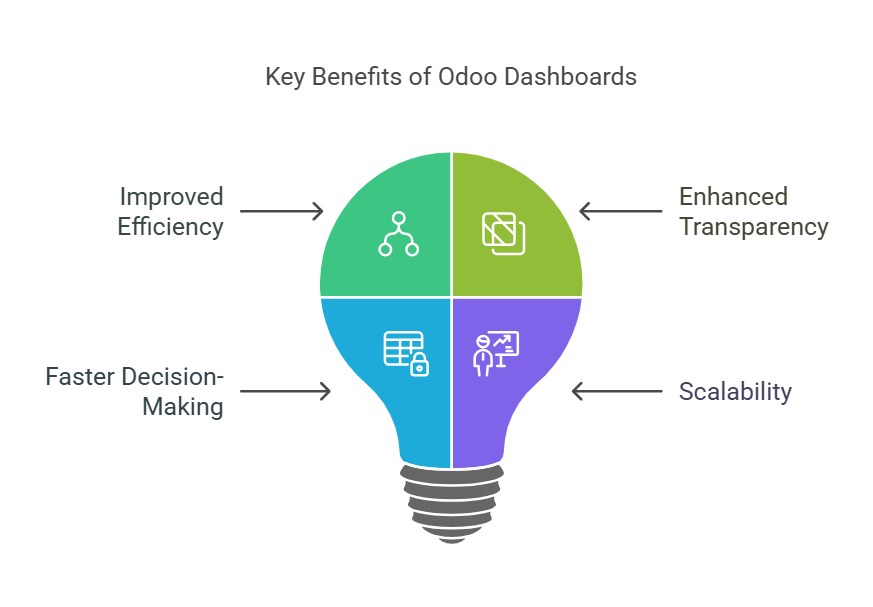
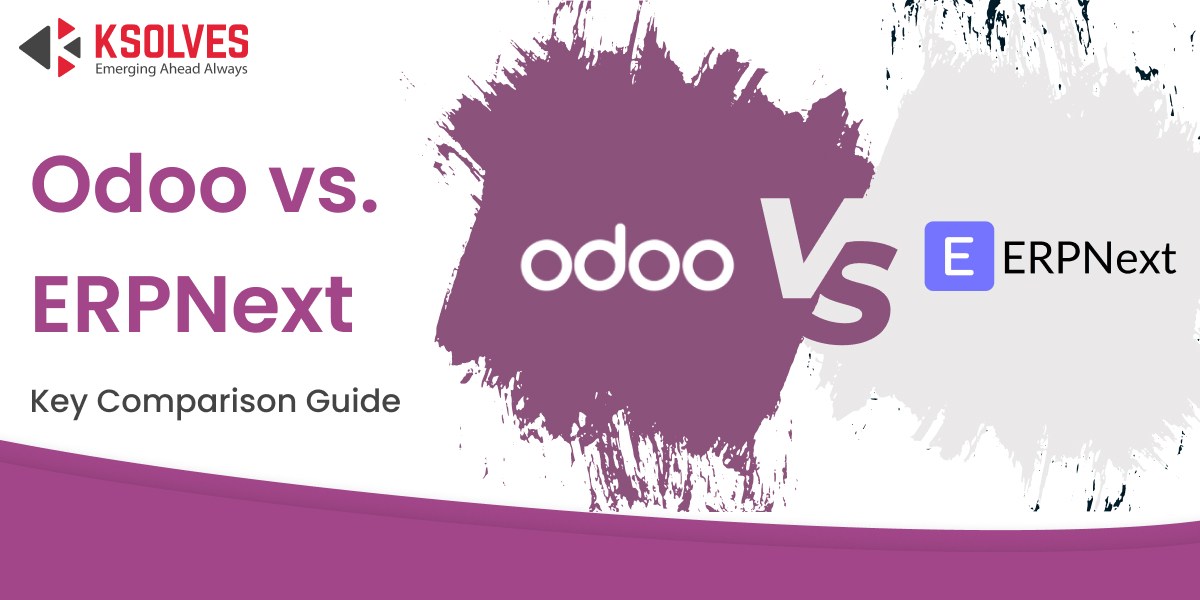
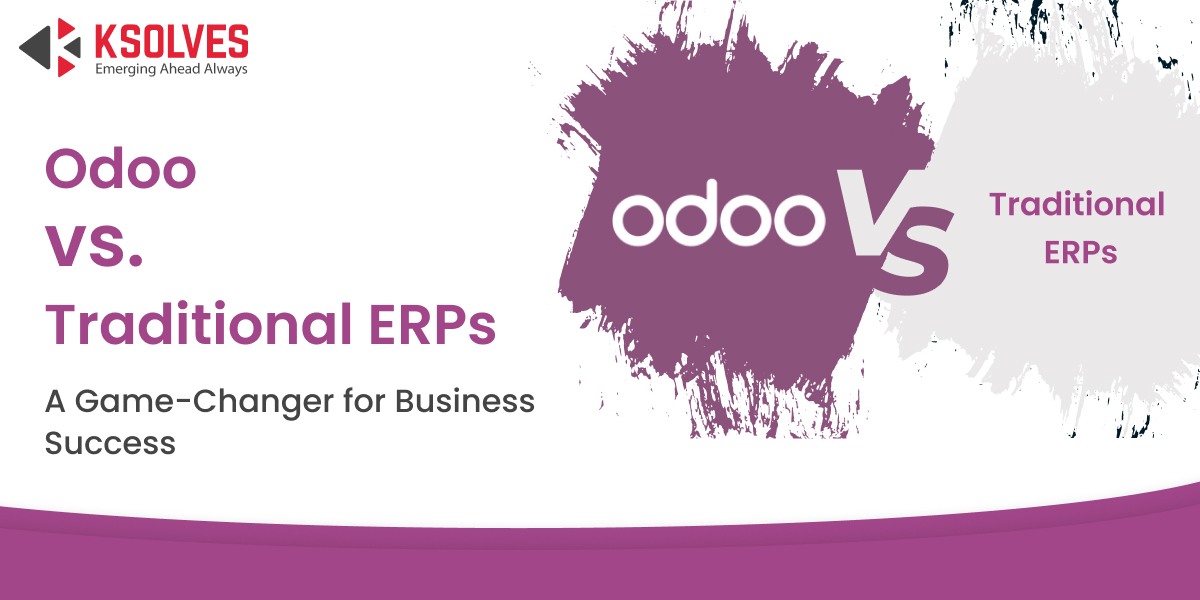
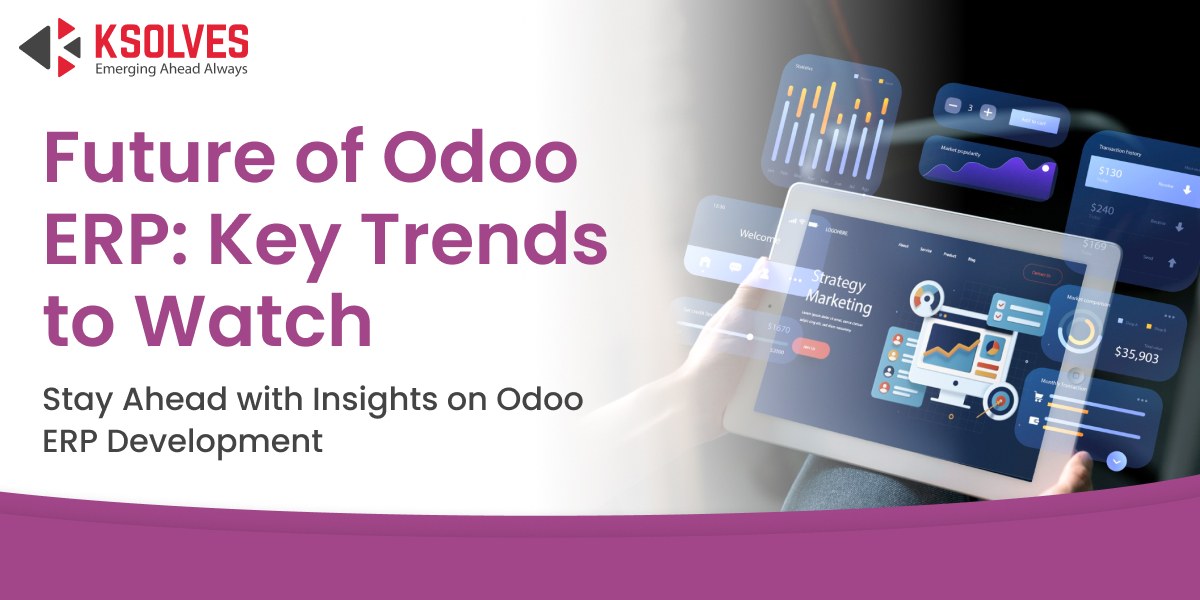

AUTHOR
Odoo
Neha Negi, Presales and Business Associate Head at Ksolves is a results-driven ERP consultant with over 8 years of expertise in designing and implementing tailored ERP solutions. She has a proven track record of leading successful projects from concept to completion, driving organizational efficiency and success.
Share with